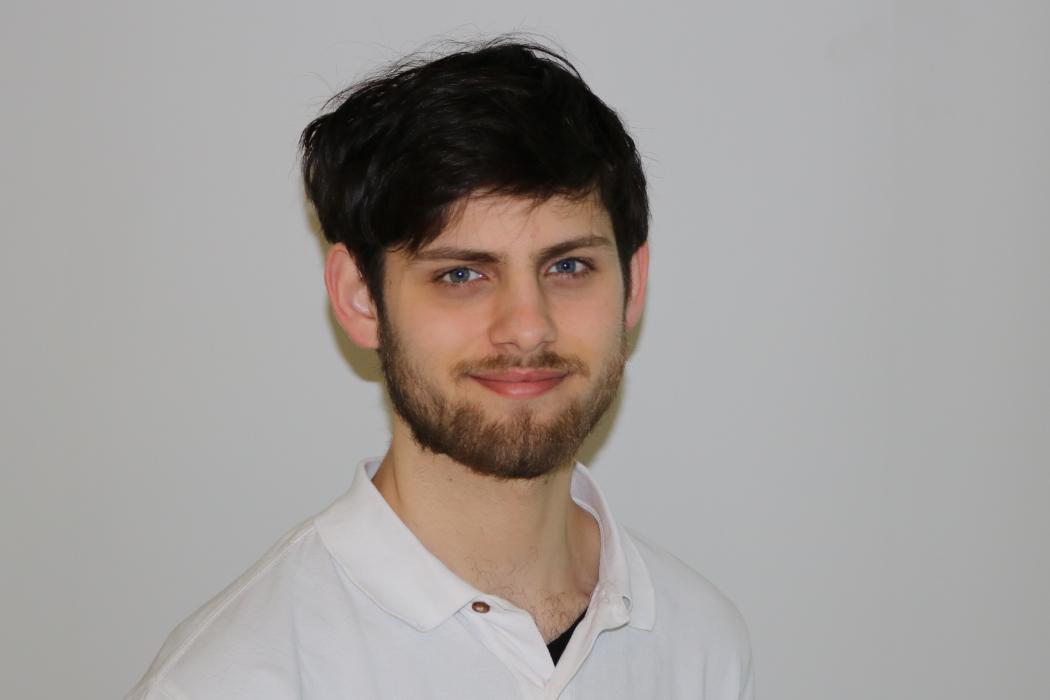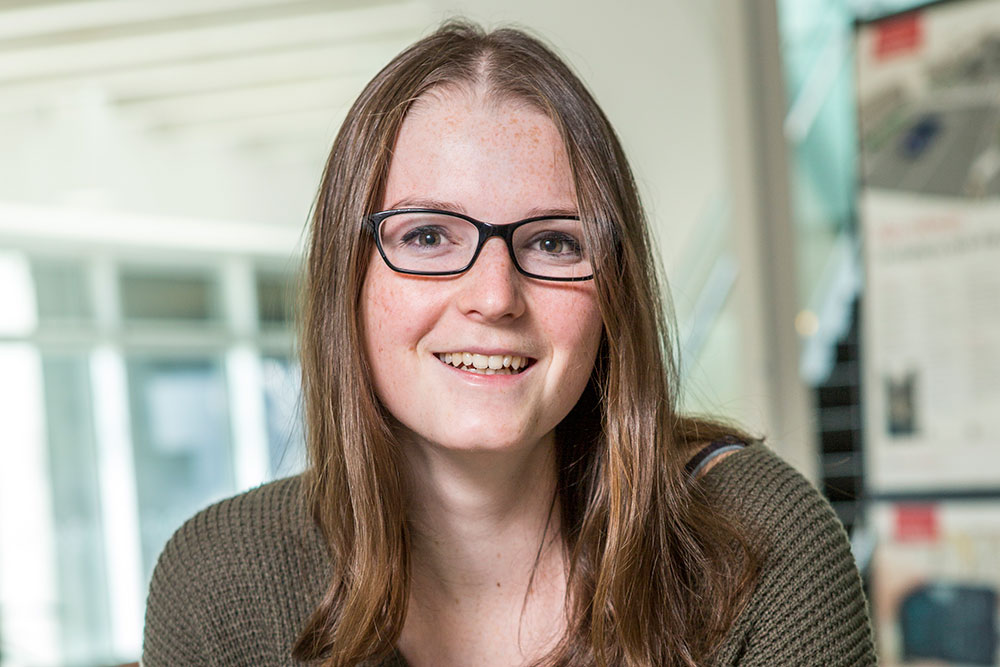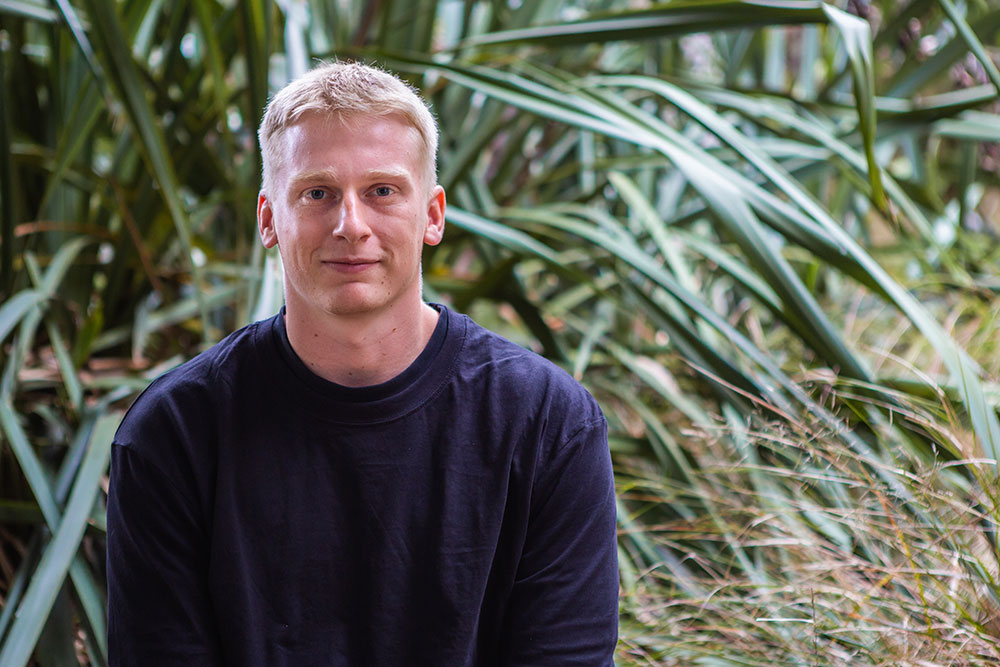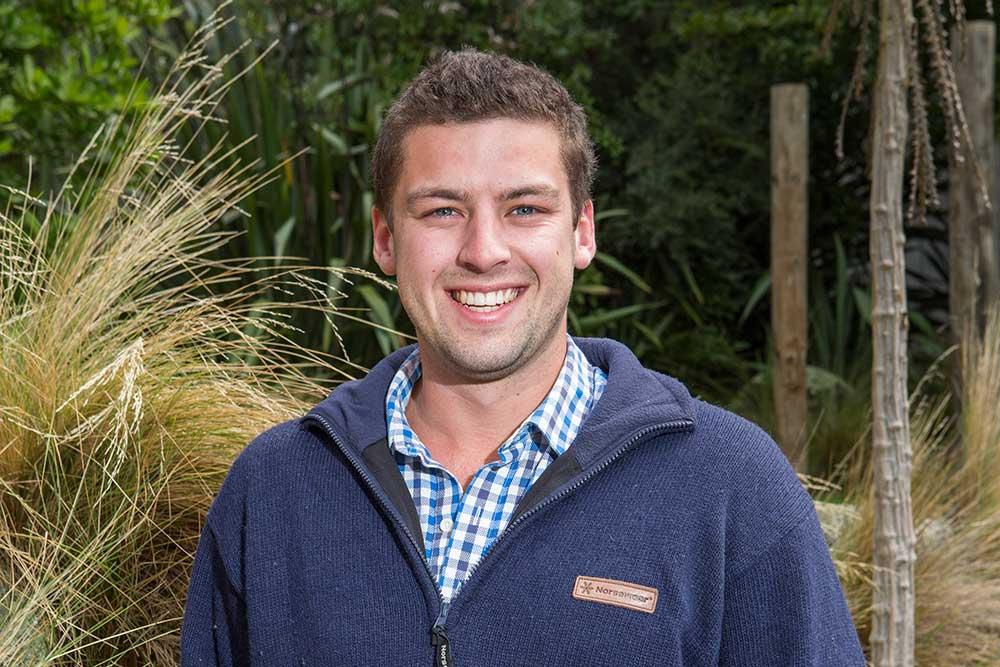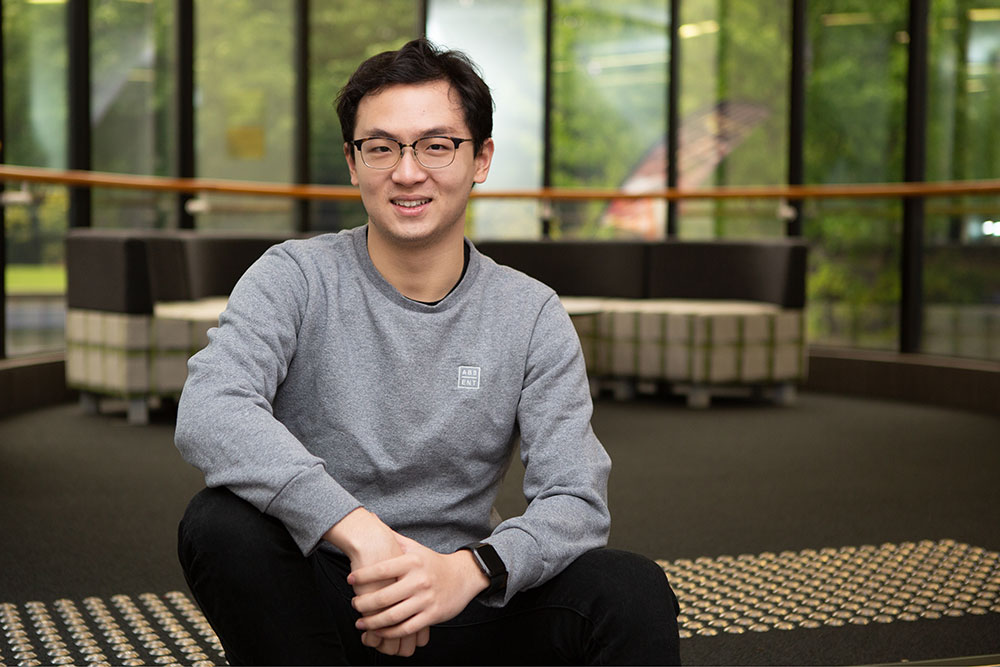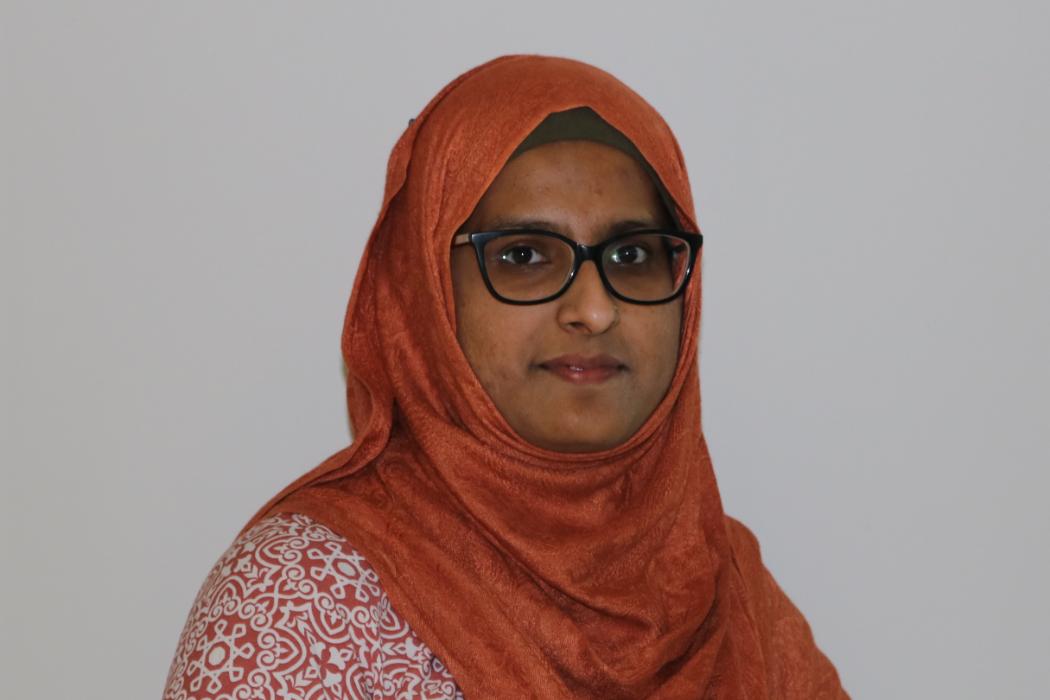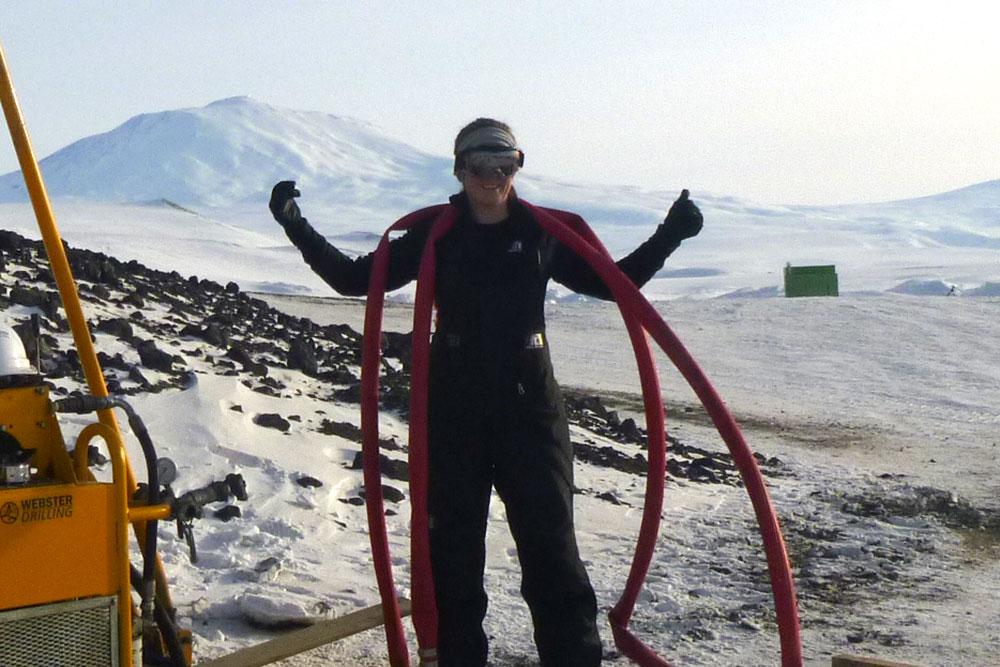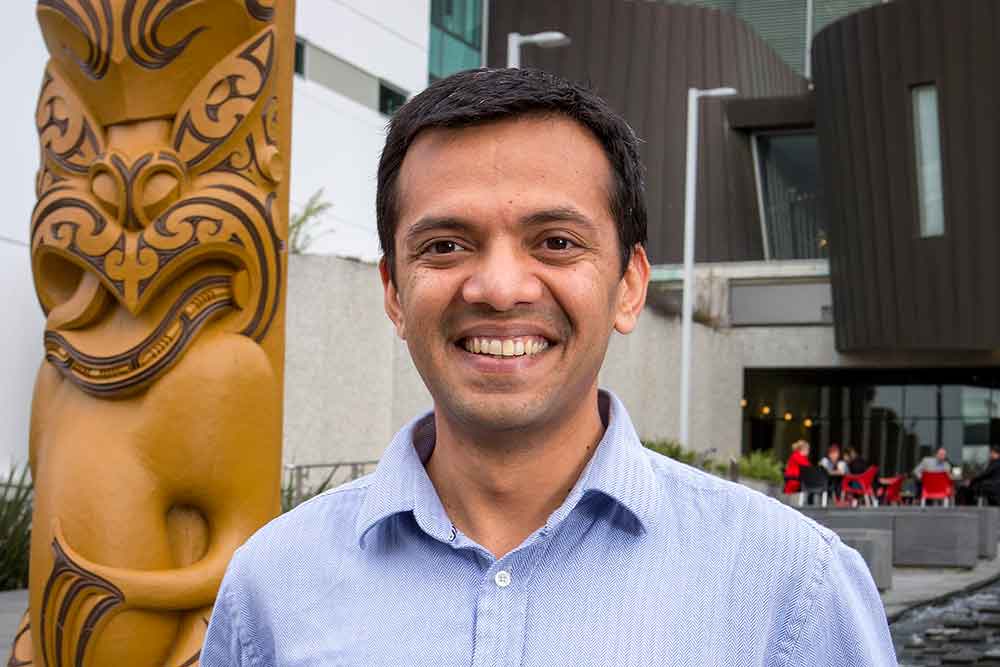Position
PhD student
Qualifications
P.E.E
MS.
BS
Background
Khawla A. Alnajjar was born in United Arab Emirates. She received the B.S degree in electrical engineering, communication track, from the United Arab Emirates University (UAEU), Al-Ain, in 2008; the M.S. degree in electrical engineering from Columbia University, New York, in 2010; and the P.E.E degree in electrical engineering from Columbia University, New York, in 2012. She is currently pursuing the Ph.D degree in the Department of Electrical and Computer Engineering and Wireless Research Centre (WRC) at University of Canterbury (UC), Christchurch. She engaged in research in Long Term Evolution (LTE) MIMO and single-input-single-output (SISO) precoder design during the summer of 2012 at WRC, UC. She also worked on precoding designs for the interference channel at AT&T Shannon lab in New Jersey, USA during 2011-2012. She did industrial training in 2006 at Dassault Aviation, Paris. In addition, she worked during the summer of 2006 with the General Information Authority, Abu Dhabi, United Arab Emirates. She worked as an academic assistant in 2008 and then teaching assistant 2009-2013 in UAEU. Moreover, she did industrial training at Total-Pau, France in summer 2010 and worked at Columbia University as a grader and lab assistant from 2010-2012. K. Alnajjar is a recipient of University of Canterbury Doctoral Scholarship for her doctoral studies at UC. Her research interests include MIMO communications and analysis of communication systems.
Receiver Design for Massive MIMO
Khawla A. Alnajjar
Khawla A. Alnajjar is working in Massive Multi-Input Multi-Output (MIMO). This is one of the technologies proposed both in university laboratories and in international industrial partnerships as a key enabler in the future. Hence, this area is topical and very relevant. Khawla is a recipient of University of Canterbury (UC) Doctoral Scholarship and the Ministry of Higher education (MOHE) in the UAE for her doctoral studies at UC. Her supervisors are Prof. Peter Smith and Dr. Graeme Woodward.
In the next decade, the demand for higher data rates and quality of service is expected to continue to grow rapidly. This growth is expected to exceed what is currently possible with today’s technology. As a result, telecom operators around the world are attempting to gain access to more spectrum. However, spectrum is scarce and expensive and industry and academia are already looking ahead to new ideas and new technologies that can help to meet the needs of future wireless services.
The aim of this project is to address the explosive growth in wireless data demands, driven by smart phones, ipads, tablets and other advanced devices. Khawla’s research is aimed to propose some new solutions using Massive MIMO to provide capacity increases for the future. This research mainly focuses on Massive MIMO receiver design because it is a fascinating area since standard techniques become too computationally expensive with large systems. Hence, even the simplest approaches should be re-evaluated and clever mathematical and algorithmic techniques should be applied to produce low-complexity solutions.
Khawla received the B.S degree in electrical engineering, communication track, from the United Arab Emirates University (UAEU), Al-Ain, in 2008; the M.S. degree in electrical engineering from Columbia University, New York, in 2010; and the P.E.E degree in electrical engineering from Columbia University, New York, in 2012. She is currently pursuing the Ph.D degree in the Department of Electrical and Computer Engineering and Wireless Research Centre (WRC) at University of Canterbury (UC), Christchurch. She engaged in research in Long Term Evolution (LTE) MIMO and single-input-single-output (SISO) precoder design during the summer of 2012 at WRC, UC. She also worked on precoding designs for the interference channel at AT&T Shannon lab in New Jersey, USA during 2011-2012. Her research interests include MIMO communications and analysis of communication systems.
Publications
K. A. Alnajjar, P. J. Smith and G. K. Woodward, “Low complexity V-BLAST for massive MIMO with adaptive modulation and power control”, in Proc. IEEE Conf. on Information and Communication Technology Research (ICTRC), to be presented in May. 2015.
K. A. Alnajjar, “Inverse Approximation of Linear Receivers for Massive MIMO”, in Proc. IEEE Conf. on Information and Communication Technology Research (ICTRC), to be presented in May. 2015.
K. A. Alnajjar, P. J. Smith and G. K. Woodward, “Performance of massive MIMO V-BLAST with channel correlation and imperfect CSI”, in Proc. IEEE Conf. on Australian Telecommunication Networks and Applications Conference (ATNAC), Melbourne, Australia, 26–28 November 2014.
K. A. Alnajjar, P. J. Smith and G. K. Woodward, “Low complexity V-BLAST for massive MIMO”, in Proc. IEEE Conf. on Australian Communications Theory Workshop (AusCTW), Sydney, Australia, Feb. 2014.
R. W. Longman, K. A. Alnajjar and X. Ji, “ Comments on how a new engineering field develops: A case study from iterative learning and repetitive control”, Proc. Springer Conf. on Intelligent Technologies and Engineering systems (ICITES), Kaohsiung, Taiwan, Dec. 2013. This paper appears in Springer lecture notes series book.
K. A. Alnajjar, N. Pau and G. K. Woodward. “ Aligned precoder in Long Term
Evolution using SISO and MIMO”, in Proc. IEEE Conf. on Information Sciences and Systems (CISS), 2013.
K. A. Alnajjar, V. Aggarwal, V. A. Vaishampayan, and Xiaodong Wang. “Aligned precoder designs for interference channels based on chordal distance”, in Proc. IEEE Conf. on Information Sciences and Systems (CISS), 2012.
K. A. Alnajjar, and I. Kalet. “Phase modulation by a Gaussian random process-the power spectral density”, in Proc. IEEE Conf. on Microwaves, Communications, Antennas and Electronics Systems (COMCAS), 2011.


